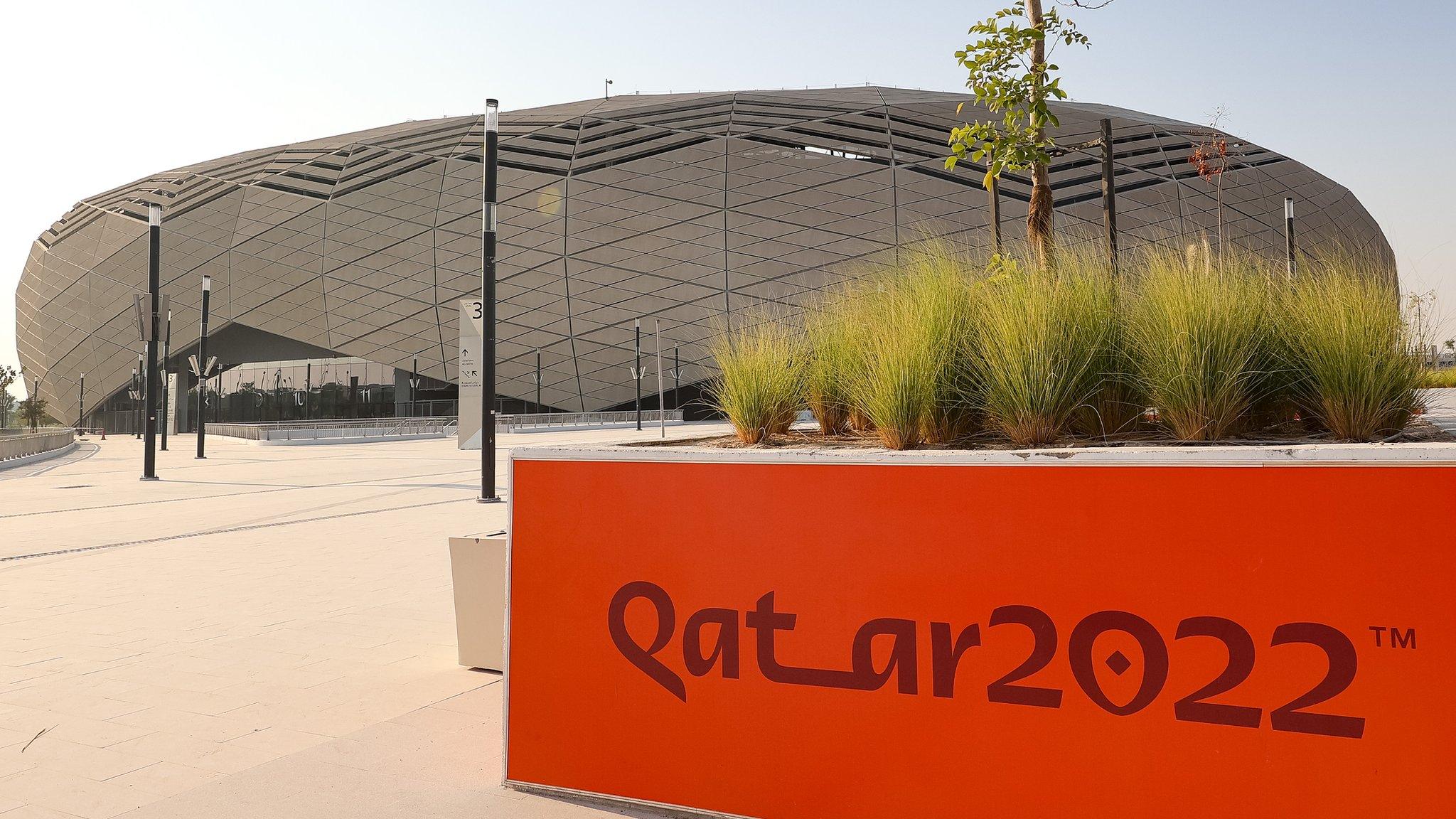World Cup 2022: Q&A on Wales in Qatar
- Published
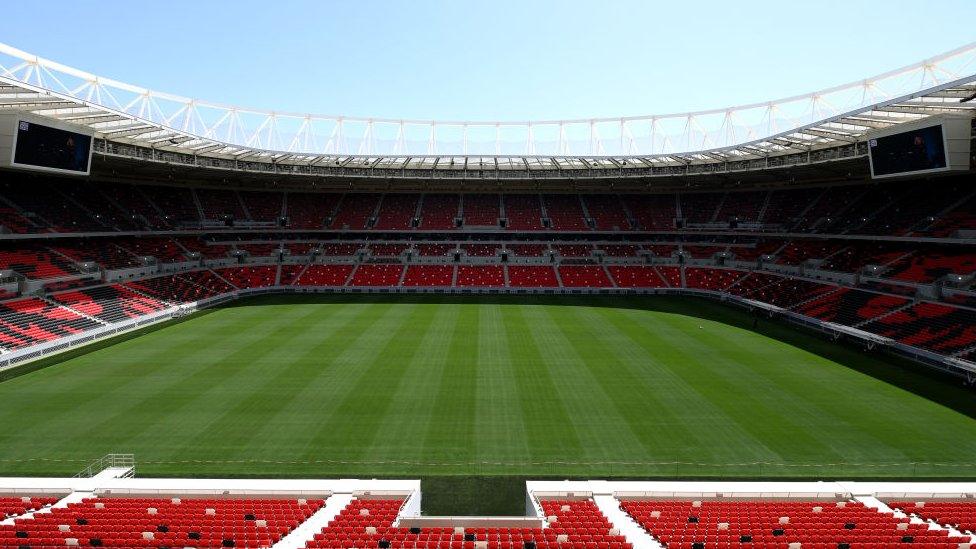
Inside the Ahmad Bin Ali Stadium, where Wales will play their group matches
Many Wales fans will already be singing Don't Take Me Home again in their heads as they make tentative plans to fly to the Qatar World Cup.
But for various reasons this will be a tournament like no other.
So what can you expect if you can get a ticket for the games against the United States, Iran and, of course, England?
Where will Wales be playing?
Wales will play their group games in Al Rayyan, a suburb south west of the capital Doha, kicking off on 21 November against the US.
It's the first winter World Cup and the first time the tournament has been held in a Muslim country in the Gulf.
Wales' three group matches - the others are against Iran, (25 November) and England (29 November) - will all be played at the Ahmad bin Ali Stadium, external, which has a capacity of about 40,000 and is due to host seven games in all.
It is around a 20-minute tram ride from the centre of Doha.
The arena, the rebuilt home of local side Al Rayyan Sports Club, has a "glowing facade" at night and has dune-shaped hospitality areas, which reflect the desert.
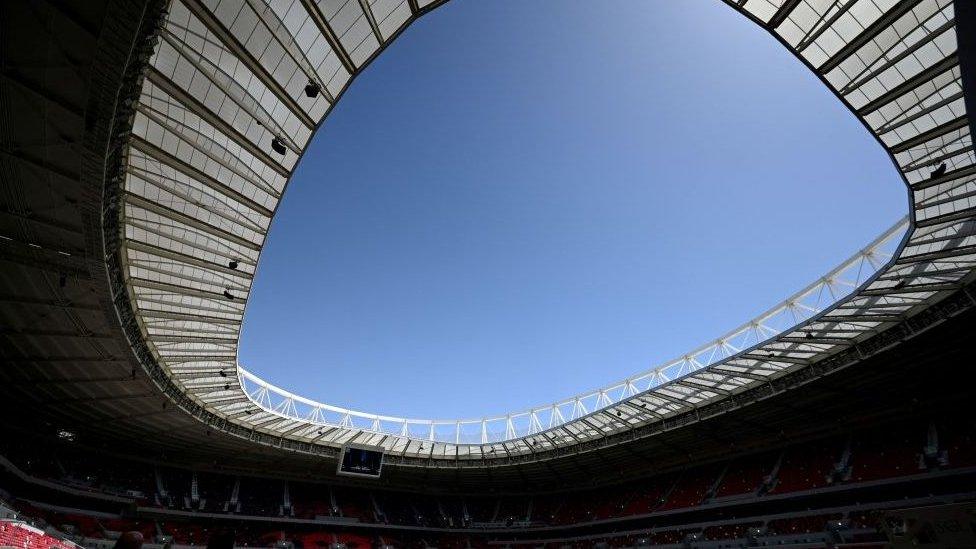
The Ahmad Bin Ali Stadium is all shaded while two of Wales' matches will be played in the evening
How do I get a ticket?
The Football Association of Wales (FAW) is still waiting for ticket details from Fifa, but these are expected to be allocated to Red Wall membership scheme based on previous bookings. Details are expected soon.
Some lucky fans will already have tickets allocated if successful in the Fifa ballot, which was open to everyone but was more than five times over-subscribed.
Ticket prices for first round matches range from about £50 to £171.
Some Welsh fans have already expressed concern that they will be out-priced and that fewer than 2,500 tickets could be available for some games.
What will fans need?
Fans will need an ID card - a Hayya card, external - which will also act as a visa to get into Qatar, as well as a fan ID, to get into games. The card will also cover free travel on public transport on match days, including bus, metro and the tram - which directly links central Doha with the stadium.
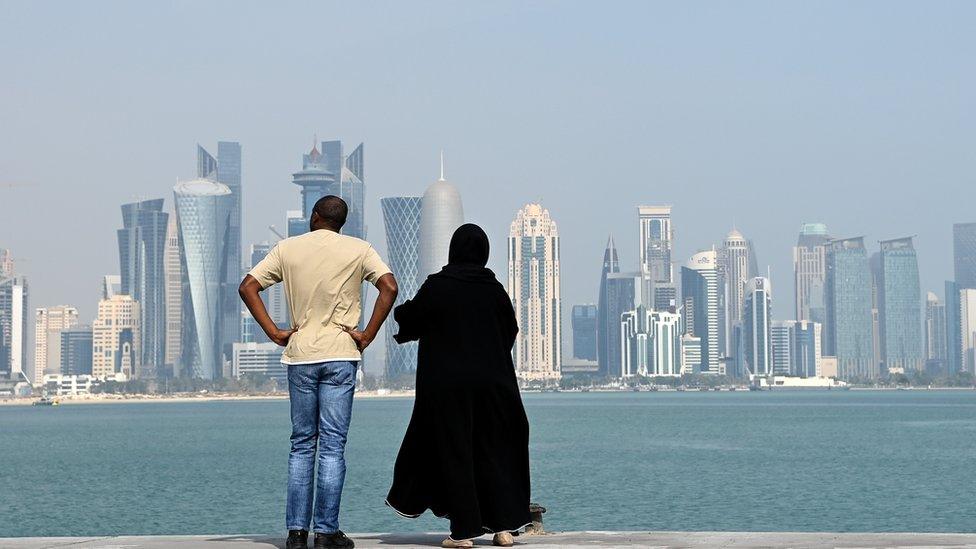
Downtown Doha, which is about 20 minutes from where Wales will play
Staying in Qatar
Accommodation will have to be arranged before travelling out. Tournament organisers say it will include hotels, apartments, villas, fan villages and cruise ship cabins, with official accommodation starting from $100 per room per night.
Flights normally take six hours and 40 minutes from London, but there will be charter flights from Cardiff organised by Wales travel operators.
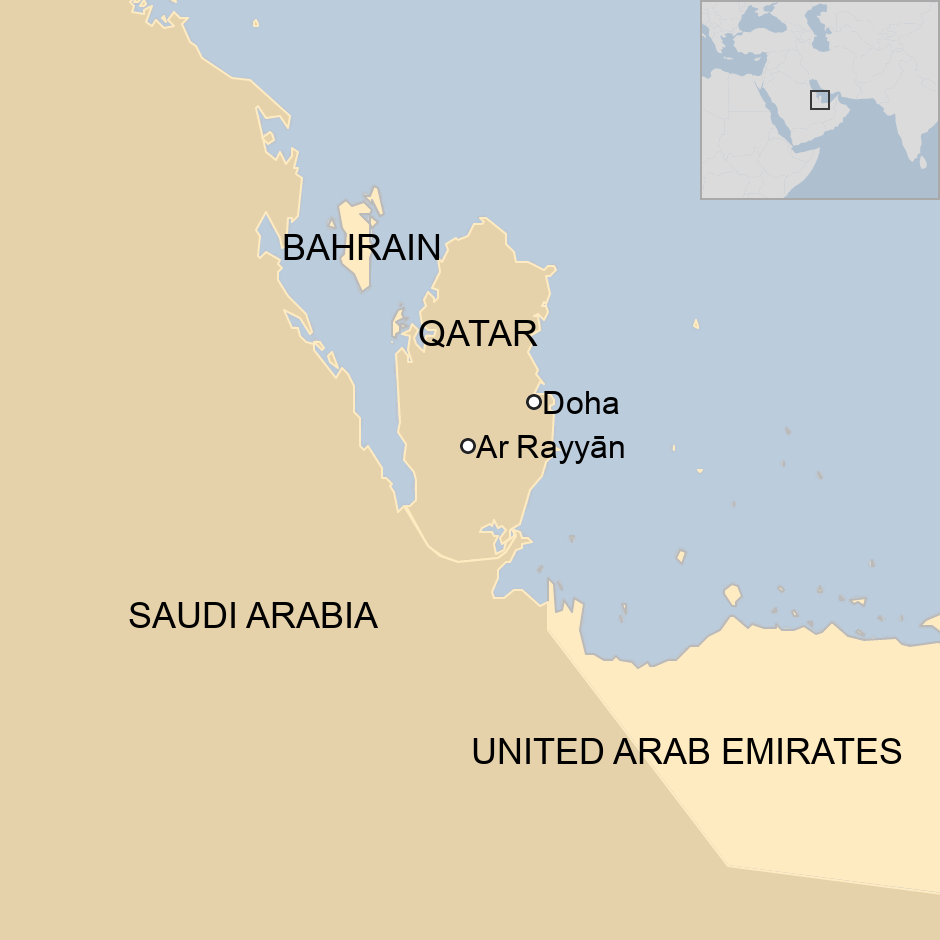
What is Qatar like?
The Foreign and Commonwealth Office says local laws and customs are "very different"., external There is normally a ban on drinking alcohol or being drunk in public places, which carry sentences of up to six months in jail.
You can't buy alcohol in shops either. However, alcohol is allowed inside licensed bars and hotels and is expected to be available in fan zones.
Qatar is still finalising its policy towards alcohol for the World Cup but there is already a warning that its availability, and the laws around it will be different to previous tournaments.
Swearing or obscene gestures also carry penalties, including deportation. There is a recommendation to dress modestly in public. There are also serious consequences for anyone caught with drugs.
Homosexuality is illegal in Qatar and there has been concern over safety from LGBTIQ+ groups despite discussions with Fifa.
How expensive will it be?
The currency is the Qatari Riyal and the exchange rate is currently around 4.6 for every pound. Things can be expensive in some places so the advice is to shop around. A bottle of non-alcoholic beer could set you back the equivalent of about £10.
And how hot?
November temperatures can hit a high of 30C but are generally in the 20s. The reason the tournament has been switched to the winter is because of the searing heat of the summer months in this part of the world.

THE HIDDEN WORLD OF FOOTBALL: The collapse of a football team run by a wannabe pop star
FEAST OF FOOTBALL: Chew over the week's football with Elis James

- Published5 June 2022
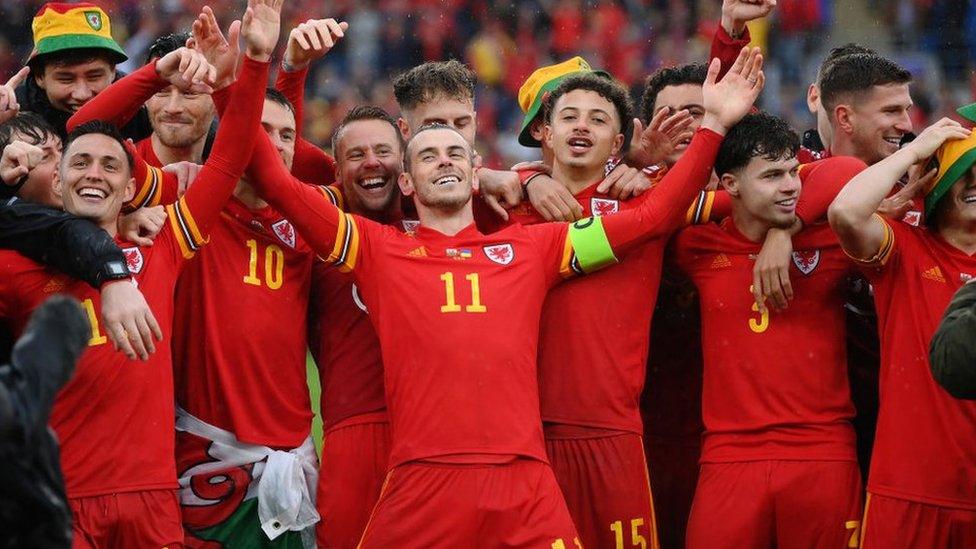
- Attribution
- Published5 June 2022

- Attribution
- Published1 April 2022
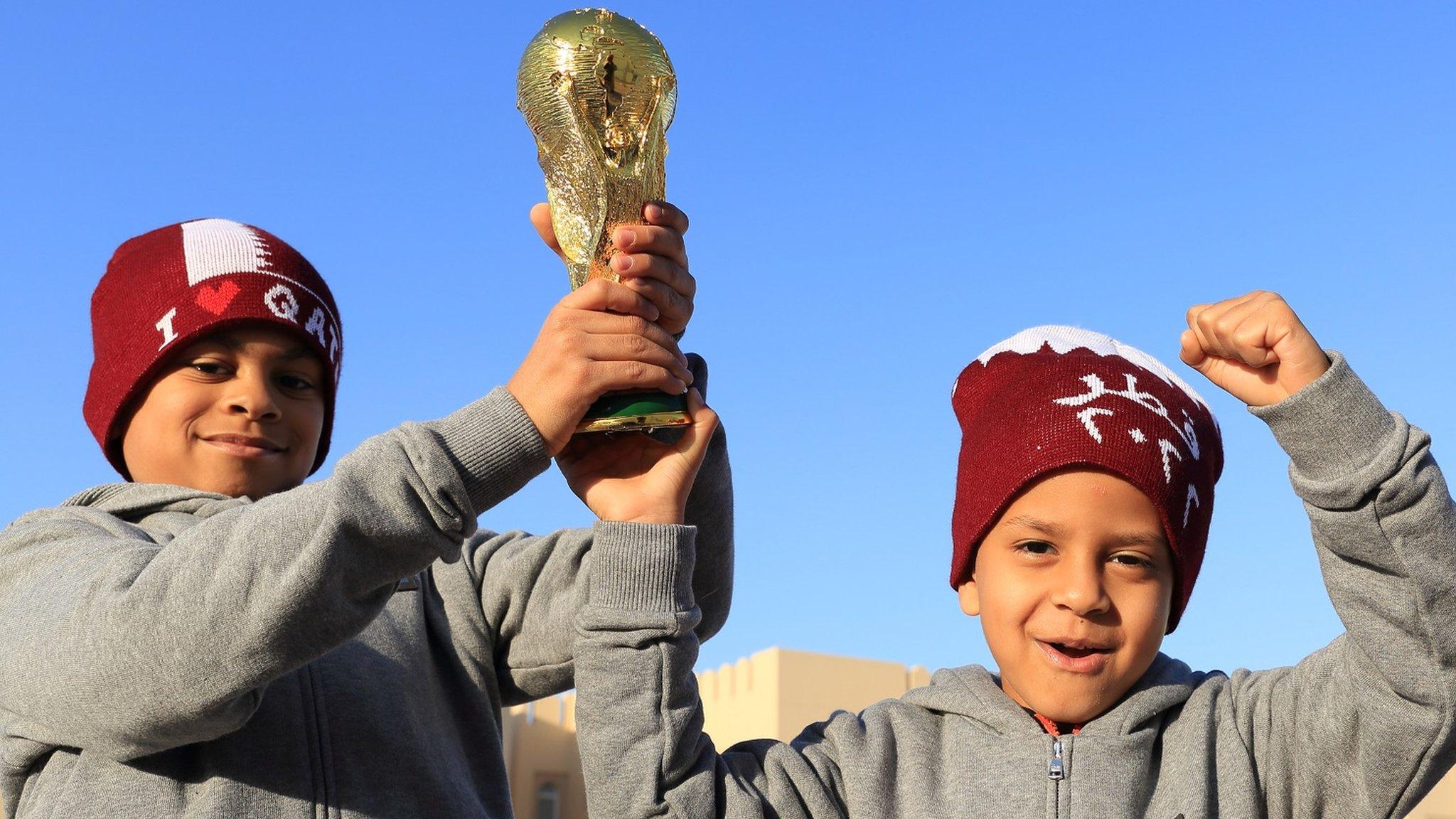
- Attribution
- Published7 April 2022
